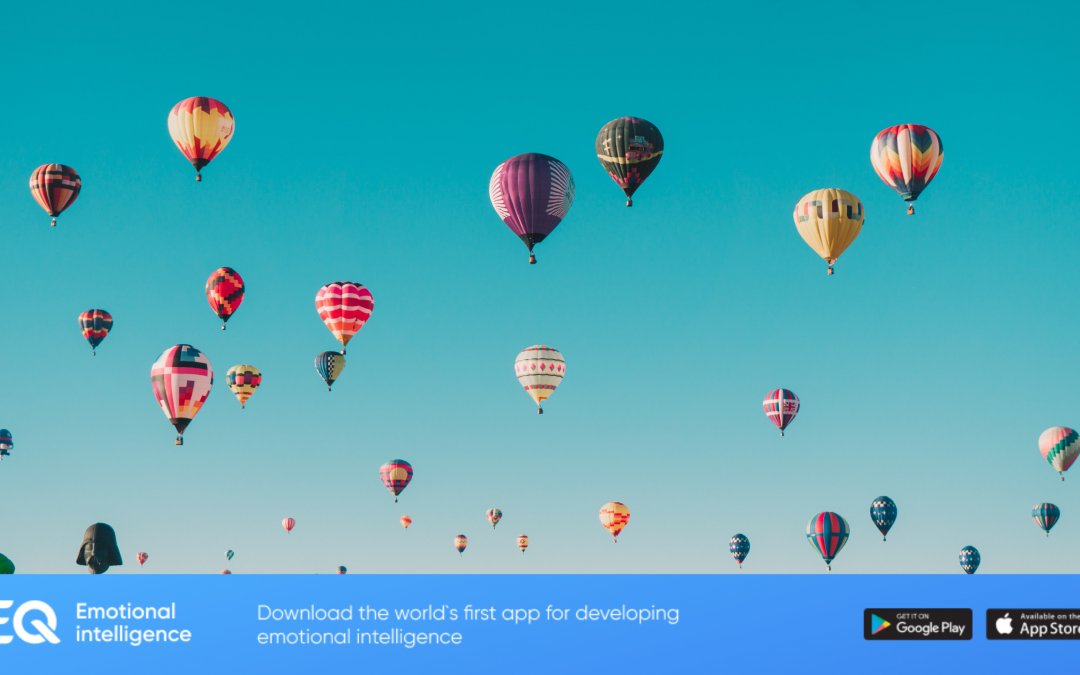At the moment, the main global trend is mindfulness.
Mindfulness is a concept that describes the state of continuous awareness of ongoing experiences. When they say “be here and now”, “focus on the moment”, or “slow down”, then this is just about awareness. Most of the time we do not notice what our brain is doing and how it perceives what is happening. We do not track his reactions and sometimes we do not know how the events around us affect our emotional background. We do not notice, we block, we postpone sensations when at the same time the brain catches them, saves them, and only builds them up. It is common for a modern person to live in an era of multitasking and efficiency, but this culture encourages our thoughts to jump from one to another. We think about many things at the same time, including those that have happened in the past or will happen in the future, which as a result greatly scatter our attention.
Emotional intelligence should begin with an awareness of what is happening to you. You need to learn to separate yourself and emotions, to present them as a separate phenomena, and look at them from the side. Emotions are your reaction to what is happening around you. They change with changes in external circumstances, so remember:
you ≠ your emotions. The ability to separate emotion from yourself will help you assess the situation, make a decision and respond correctly.
If you have experienced stress, burnout, or even depression, you must be familiar with the state when you felt you had reached the limit. There is no room for new sensations in your inner world. Everything was filled with accumulated negative emotions and problems that had not been analyzed and resolved in due time. Or, the opposite case, when you were told what a happy person you are, what wonderful people surround you, how lucky you are with work and personal life. Everything is so, only it was you who understood this, agreed, but sincerely did not feel it. This is an example of when we blocked positive feelings.
The main purpose of mindfulness is to keep track of what our brain is doing. Mindfulness is not about freeing the mind from thoughts, but about focusing on the moment of being. It teaches us not to run away from problems but to carefully observe our reactions when they arise. If you develop a conscious attitude towards events and people around you, you will be able to control your emotions and even make friends with negative feelings.
Concentrate on the activity or creation of something. Understand the degree of importance of the matter, do not switch from primary to secondary.
Feel your body and understand its needs: hunger, discomfort, pain, fatigue, etc.
Consciously experience emotions. Understand when you are annoyed, when you are “on edge”, when you are depressed, etc. The ability not to condemn yourself for the lack of “necessary” and “appropriate” emotions can be attributed to the same point.
Do not make value judgments. Awareness of yourself as a unique person among many other unique people eliminates the desire to “hang labels”, give unsolicited advice and make comments.
Do not lose confidence in your beliefs because of criticism. This point follows from the previous one. Some tactless persons take the position that their point of view is the only correct one, and those who do not correspond to it are fools / do not have taste/morals / do not have enough experience, etc. If you are a conscious person, then you cannot perceive a priori such attacks are close to the heart. You understand – the thought in the mind of a stranger is just an idea of how you should look through the prism of his life experience.
Indeed, the ability to be in a state of here and now is an important skill for life in cities and towns. The flow of mental noise from advertising, news, and social networks, makes the ancient parts of our brain constantly stay on alert. An overabundance of irritants creates tension and puts the body in a state of stress.
The essence of mindfulness practice is that a person is invited to concentrate on the current moment. There are many ways: from meditation to exercise. A person follows his breath and is not drawn into the stream of thoughts, and if he is distracted, it’s okay, you can always gently return to practice.
After seeing the stunning results of people practicing mindfulness, many companies began implementing programs in their corporate culture.
Among them: are Google, Intel, Apple, the large insurance company Aetna, the Target supermarket chain, the American police, Chicago Bulls basketball players, and many others.
Mindfulness practices increase stress resistance, empathy, and employee efficiency, and this has a positive effect on both people’s health and the financial side of the company.


Recent Comments